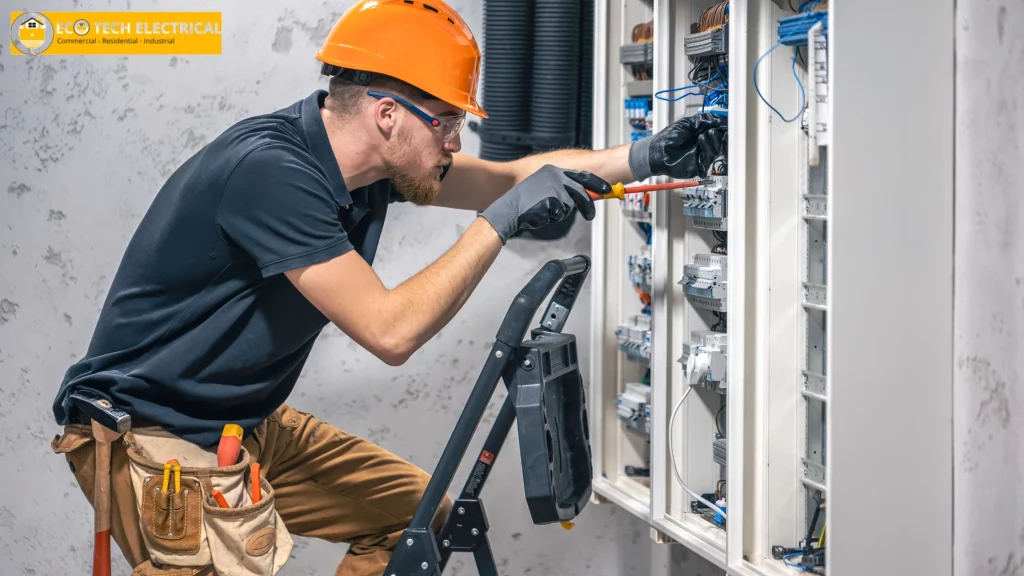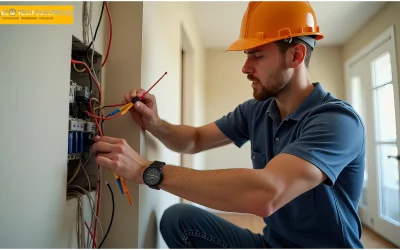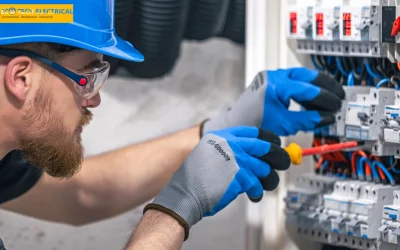The Impact of Commercial Electrical Audits on Energy Savings and Safety
Commercial electrical audits are crucial for ensuring that your building’s electrical system operates efficiently and safely. Through these audits, electricians identify energy inefficiencies, safety risks, and compliance issues. Regular audits can lead to cost savings, reduced downtime, and improved performance across the board. Let’s explore eight key impacts that commercial electrical audits have on energy savings and safety.
1. Identifying Energy Inefficiencies
Commercial electrician services Calgary audits pinpoint energy waste from outdated systems, overloaded circuits, or inefficient power distribution. Technicians assess load balancing, voltage regulation, and power factor, recommending upgrades like LED lighting, variable frequency drives (VFDs), or modern transformers. These changes optimize energy usage and reduce operational costs significantly.
2. Enhancing Electrical Safety
Audits detect potential hazards such as insulation breakdown, arc faults, or improper grounding. They ensure compliance with NEC (National Electrical Code) standards, minimizing the risk of electrical fires, short circuits, or equipment damage. Audits also assess surge protection systems, ensuring your infrastructure is shielded from voltage spikes.
3. Preventing Downtime
Electrical audits identify weak points in your system that can lead to unplanned outages—such as loose connections, faulty circuit breakers, or overloaded transformers. Detecting these issues early allows for timely intervention, reducing the risk of unexpected equipment failure and costly operational downtime.
4. Prolonging Equipment Lifespan
Regular electrical audits monitor load distribution, overheating risks, and equipment performance. Overloaded circuits or high harmonic distortions can shorten the lifespan of machinery. Audits ensure that wiring, panels, and transformers are functioning optimally, reducing stress on critical systems and extending their operational life.
5. Ensuring Compliance with Codes
Electrical codes evolve as technology and safety standards improve. A commercial electrician will carry out audit checks. It will tell if your system complies with updated standards, such as arc flash protection and proper grounding techniques. Non-compliance could result in penalties, failed inspections, or legal liabilities, particularly for older buildings.
6. Lowering Long-Term Costs
Electrical inefficiencies, like excessive reactive power or voltage drops, drive up energy bills. Audits identify inefficiencies and recommend power factor correction, energy-efficient upgrades, or load balancing to optimize energy flow. These adjustments reduce energy consumption, resulting in significant long-term cost savings and fewer equipment failures.
7. Improving Sustainability
Audits help businesses reduce their environmental impact by identifying high energy consumption areas. Recommendations include installing energy-efficient lighting, optimizing HVAC systems, or integrating renewable energy sources like solar panels. Improving energy efficiency reduces the building’s carbon footprint, aligning with sustainability goals and government incentives.
8. Boosting Property Value
An electrical audit improves a building’s reliability and safety, directly impacting its market value. Upgrading to energy-efficient systems, installing advanced surge protection, and ensuring compliance with modern electrical codes makes your property more attractive to buyers and tenants. This adds long-term value while reducing maintenance costs.
Final Thoughts
Commercial electrical audits help businesses enhance energy efficiency, ensure compliance with safety standards, and prevent costly repairs. Regular audits lower operational costs, increase equipment lifespan, and improve property value. Investing in these audits is a proactive way to protect your business and ensure long-term savings.



